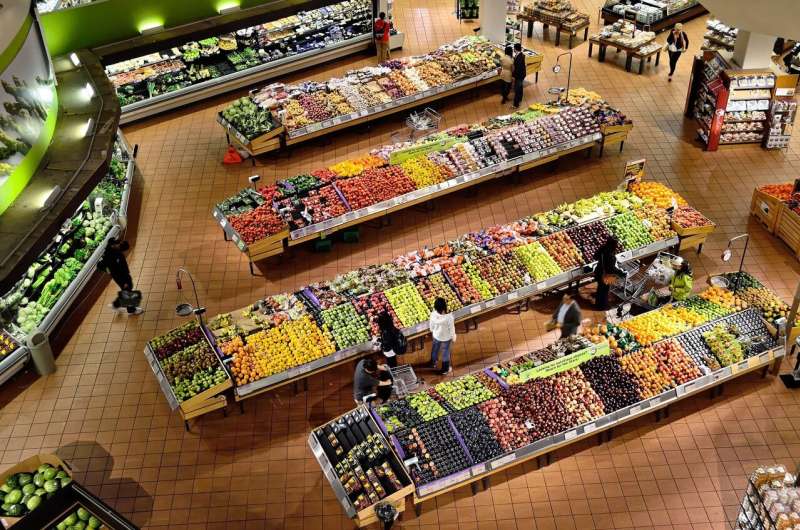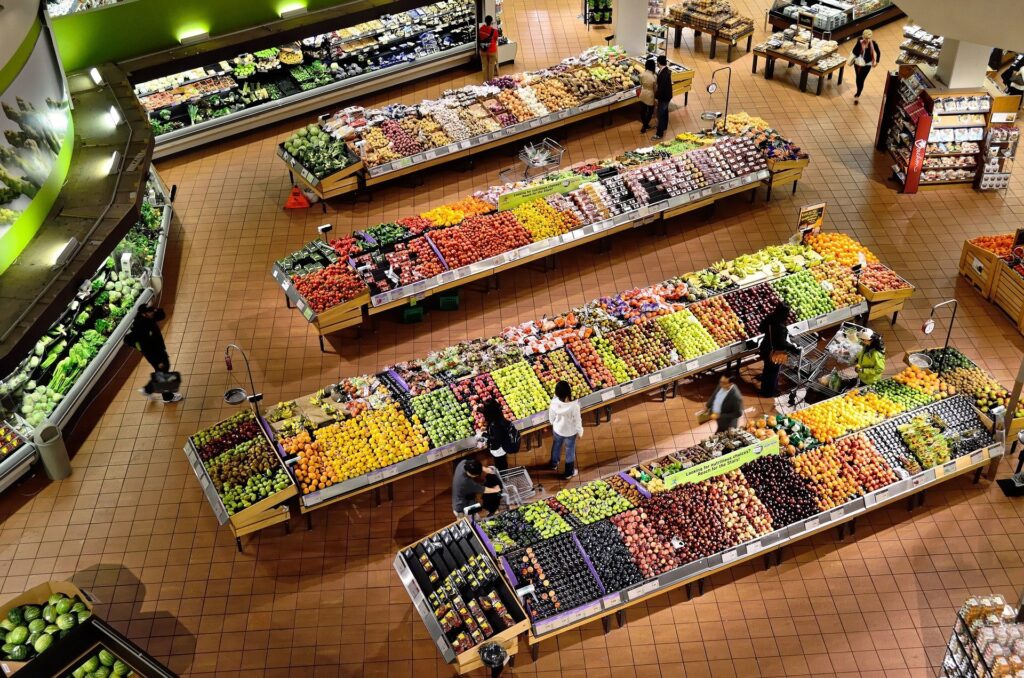
A new study that models the combined effects of a sugar-based tax on beverages and targeted subsidies for minimally processed foods and drinks has found that under these policies, low-income consumers would purchase fewer sugar-sweetened beverages and more fruits, vegetables, and healthier drinks, particularly in households without children.
The findings are published in the American Journal of Preventive Medicine.
Researchers at the University of North Carolina at Chapel Hill developed a model to simulate what would happen if national-level taxes on less-healthy, ultra-processed foods and beverages were used to fund subsidies for low-income households participating in food assistance programs to spend on minimally processed fruits, vegetables, healthy proteins, and unsweetened drinks. They found that this combined policy scenario would likely lead low-income households to improve the nutritional quality of their grocery purchases without increasing their overall costs or negatively impacting consumer satisfaction.
Targeted taxes are a proven, cost-effective means to reduce purchase and intake of sugary drinks, which could potentially save millions of years of life globally by reducing chronic diseases caused by excess sugar and calories. While over 60 countries and smaller jurisdictions worldwide have implemented health-focused sugary drink taxes, relatively few have earmarked the revenue raised to subsidize healthy food purchases.
In the United States, studies evaluating programs that provide additional cash benefits for food assistance participants to spend on fruits and vegetables consistently find that they increase consumers’ purchase and intake of targeted products. This new study’s findings support a novel policy approach, combining both policy types to expand low-income households’ access to additional healthier alternatives like minimally processed proteins such as beans, legumes, or unprocessed meats, and no- or low-sugar beverages.
“Our findings show that we can support healthier dietary patterns in the US by directing revenues from national taxes on ultra-processed products high in sugar, sodium and/or saturated fats towards additional benefits to help low-income households purchase more fruits, vegetables and other healthier alternatives,” said author Shu Wen Ng, Ph.D., Distinguished Scholar in Public Health Nutrition at the UNC-Chapel Hill.
“This is an equity-enhancing approach that sends a clear and consistent message to the public and the food industry on the overarching goal of improving dietary patterns and nutritional security,” added author Pourya Valizadeh, Ph.D., who completed this research during a post-doctoral fellowship at UNC-Chapel Hill. “The taxes should not be primarily about generating revenue, but rather shifting the relative prices of unhealthy vs. healthy foods so that lower-income families in the US can more reliably attain foods and beverages that support health.”
This study’s findings could inform recent congressional bills, including the “GusNIP Expansion Act” and the “Opt for Health with SNAP (OH SNAP) Close the Fruit and Vegetable Gap Act” that would levy taxes on unhealthy beverages and expand targeted subsidies beyond existing SNAP benefits for minimally processed foods and beverages to low-income households.
More information:
Pourya Valizadeh et al, Promoting Healthier Purchases: Ultraprocessed Food Taxes and Minimally Processed Foods Subsidies for the Low Income, American Journal of Preventive Medicine (2024). DOI: 10.1016/j.amepre.2024.02.019
University of North Carolina at Chapel Hill
Citation:
Combining food taxes and subsidies can lead to healthier grocery purchases for low-income households (2024, April 2)
retrieved 3 April 2024
from https://medicalxpress.com/news/2024-04-combining-food-taxes-subsidies-healthier.html
This document is subject to copyright. Apart from any fair dealing for the purpose of private study or research, no
part may be reproduced without the written permission. The content is provided for information purposes only.




